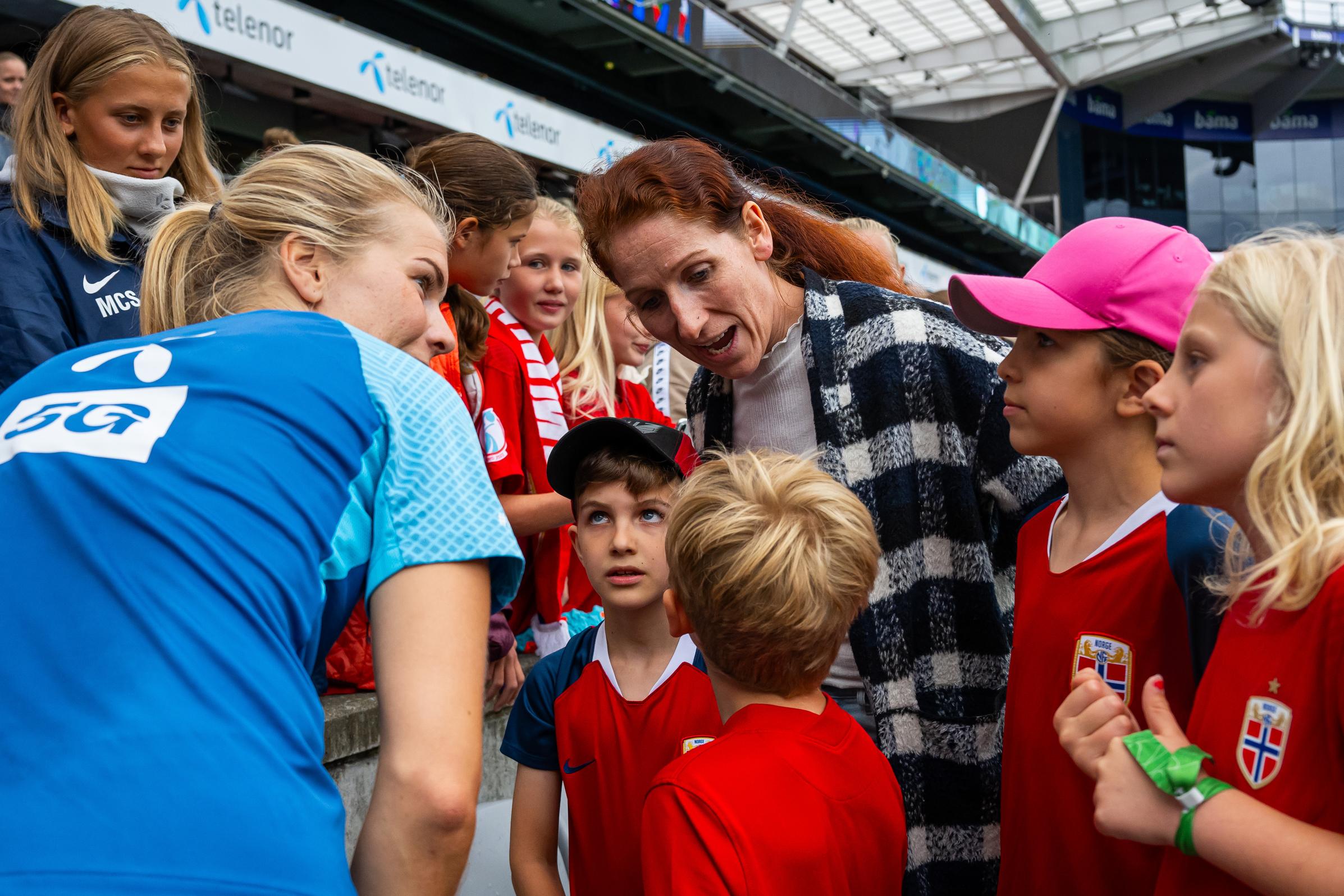Dialogue, transparency and governance

Why is this important for achieving our goals?
Dialogue and transparency help build trust, foster collaboration, and ensure that the NFF can handle challenges openly and effectively. The NFF needs to earn trust within society, among our clubs, supporters, and stakeholder organisations. Trust enables us to grow our membership base, secure stable revenue streams, enhance our influence, and develop our role as a significant and responsible societal player.
The NFF's reputation has improved in recent years, yet many still do not fully trust the organisation. We will actively address this. Open and honest communication and transparent processes will demonstrate our commitment to the NFF's values while fostering strong relationships and maintaining our credibility as a societal actor. Certain supporter groups remain sceptical of institutional structures, and resistance to the establishment is part of the culture.
Full trust can never be guaranteed in such relationships. However, we can and will work strategically and insightfully to ensure that the relationship and dialogue are as secure and trust-based as possible.
Good governance is fundamental to maintaining trust in Norwegian football and the NFF. Without integrity, transparency, and accountability, it becomes challenging to fulfil our social responsibility and build the trust required to represent and advance the interests of our clubs. Through clear and strategic leadership, improved business and risk management, and targeted efforts to promote dialogue, we will ensure that the NFF delivers on its mission: to unite, develop, and strengthen football across Norway.
Football democracy
Norway's football democracy is one of our greatest strengths. Unlike most other football federations, the Norwegian Football Federation governs all league levels, from grassroots to the top tier. Additionally, clubs—including professional ones—are member-owned, and all clubs have direct voting rights at regional and national assemblies. This ensures football remains rooted in the community and gives members a unique opportunity to influence the development of Norwegian football.
However, participation at regional and national assemblies remains low, posing a challenge to football democracy. For it to function effectively, we must listen to our members' perspectives while ensuring responsible governance for the collective good. Simultaneously, we are navigating an era of increasingly polarised debates and populism—partly driven by access to multiple media platforms. These societal trends also affect Norwegian football, shaping how we discuss and make decisions.
In recent years, we have seen a growing tendency for members to coordinate actions around specific issues, outside the frames of the membership democracy, sometimes in ways that threaten stadium security and match operations. Such actions can harm the collective spirit and undermine the values that build the football democracy. This increases the vulnerability of football's governance structures and necessitates a collective effort to protect and strengthen them.
A vibrant football democracy should facilitate debate, local engagement, and broad participation. At the same time, we must balance local involvement and ownership with responsible governance and innovation.
To succeed, we need clear mandates for club and federation leadership, allowing them the freedom to govern effectively for the common good. We must also enhance engagement with football democracy, as active participation from members and clubs is crucial for local and national development.
During this strategic period, we will work to strengthen the Norwegian model and explore new ways of organising and leading Norwegian football—always with the best interests of the community in mind. We shall protect the Norwegian model of self-owned clubs consisting of individual members, governed by democratically elected bodies. We believe in the power of collaboration and unity to ensure a strong and sustainable football democracy in the future.
By 2030, we will:
Increase participation at national and regional assemblies and top clubs' annual meetings.
Create more and better platforms for information exchange and debate with clubs, interest groups, players, and supporters—both nationally and locally.
Analyse and assess measures to enhance governance models that ensure representative and responsible leadership, innovation, and long-term development.
Increase trust in the NFF among clubs (measured in club surveys), supporters (measured among ticket buyers), the general public, and football enthusiasts (UEFA/Nielsen surveys).
Improve awareness of football's societal contributions and our work towards sustainability goals (e.g. football for all and sustainable facilities).
Produce social media content that highlights the positive stories across football—from grassroots to the elite level, including referees, coaches, leaders, volunteers, and supporters.